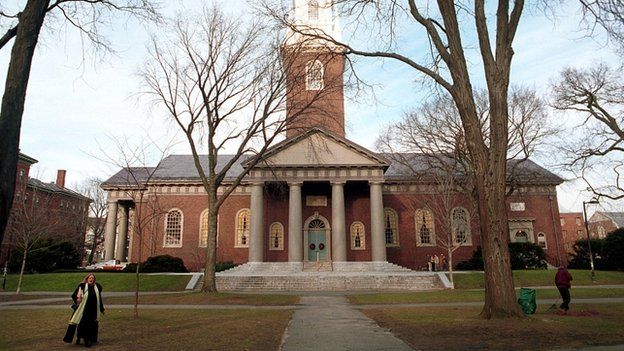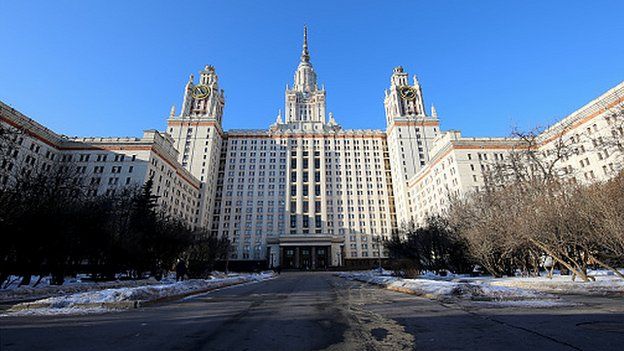- 24 February 2016
- Business
-
(교육) 억만장자는 일반인보다 학벌이 더 좋을까?아름다운 인생/교육 2016. 2. 25. 15:02
출처: http://www.bbc.com/news/business-35631029
Are billionaires more likely to be graduates?
 Thinkstock
ThinkstockAre the super-rich also likely to be successful in their studies? Are billionaires good with exams as well as their finances? Or are they more likely to have escaped school at the first opportunity and worked their way up to make their fortunes?
Are they likely to be graduates or to have dropped out from university, wanting to get a head-start in start-ups?
An analysis of the educational background of the top tier of dollar billionaires shows that they are much more likely than average to have gone to university. And they are more likely to have a postgraduate degree than no degree at all. 최상위 부자들의 교육배경을 분석해보니, 이들은 일반인들보다 더 많이 대학에 가서 공부했으며, 일반인들보다 더 많이 석박사학위도 취득한 것으로 보인다. (top tier/최상층/최상위)
It doesn't give much support for the image of self-taught entrepreneurs, relying on their own wit and wisdom rather than higher education. 이와 같은 사실은 고등교육보다는 위트와 지혜에 의지하는, 자수성가(독학)출신 기업가의 이미지와 부합되지 않는다.
The number crunching, by insurance company GoCompare, has examined the post-school education of people appearing in the top 100 billionaire rich lists by Forbes magazine over the past 20 years. (the number crunching/방대한 자료의 고속처리)대
It shows that 76% of these billionaires have a degree. This breaks down to 47% having a bachelor's degree, 23% a master's degree and 6% a doctorate.
The most popular subjects were courses related to economics and engineering. There were many more studying sciences than arts or humanities.
 Getty Images
Getty ImagesHarvard was the most popular university among these billionaires It means that about a quarter of these particularly wealthy billionaires did not enter university or dropped out before graduating.
Compared with the US adult population, it means that these billionaires are 68% more likely to have a bachelor's degree than the general population. And billionaires are more than three times as likely to have a postgraduate degree.
The billionaires are also 61% less likely not to have a degree than the typical US adult.
The type of institutions attended by the global mega rich are also much more likely to be elite institutions, rather than local colleges.
Harvard in the US is the single most likely name to be found on the CV of a billionaire, with Harvard Business School also popular.
Although one of the most famous names on the list, Bill Gates, dropped out of Harvard before finishing.
What's the point of an expensive MBA? Reflecting the rise in Russian wealth, Moscow is among the most popular university cities for these billionaires, including Moscow State University and a range of Moscow specialist institutes.
Stanford University in California and the Massachusetts Institute of Technology have become the launchpads for a rising number of tech billionaires. Google's Sergey Brin was a postgraduate at Stanford.
More stories from the BBC's Knowledge economy series looking at education from a global perspective and how to get in touch
Among UK universities, the London School of Economics and Cambridge have the most multi-billionaires in this list. Oxford can lay claim to Rupert Murdoch and in France, the Ecole Polytechnique has the most ex-student billionaires.
There are also billionaire graduates from Karlsruhe in Germany, Milan in Italy and Zurich in Switzerland.
Indian billionaires had attended the University of Mumbai and the steel magnate Lakshmi Mittal went to St Xavier's College, affiliated to the University of Calcutta.
The spread of universities does not provide much sense of a variety of backgrounds. In the US it's a scattering of Ivy League institutions and upmarket private colleges. There are billionaires from Princeton, Yale, Duke, Amherst and Bryn Mawr.
 Thinkstock
ThinkstockMoscow State University: Moscow is among the most common university towns for the ultra-rich There has been much soul-searching in many countries about the cost of higher education and whether the university system is entrenching division rather than promoting social mobility.
This study shows an alignment between the uber-rich and the most prestigious universities. And in terms of length of study, these tycoons are more likely to be D Phils than Del Boys.
This study does not show whether these billionaires began as poor, bright students who widened their opportunities through university. Or how many were the children of humble millionaires.
But it does show a decline in the self-made super-rich. The proportion of those who made their own money, rather than inherited it, slipped downwards in the financial crisis and has not recovered. It now stands at about 58%.
The analysis also shows the average age of these top 100 billionaires is about 61 years old. And compared with the general US adult population, they are much more likely to be married.
This analysis focuses on the very wealthiest - those at the top of the billionaire rich lists. But there have been previous university surveys for common or garden billionaires.
A survey of 2,300 billionaires from a Swiss banking group and a Singapore-based financial intelligence firm - the Wealth-X and UBS Billionaire Census - also found high levels of graduates.
But it found a different institution at the top of the table.
 Thinkstock
ThinkstockA study this week shows a link between the degree you get and your subsequent earning power The University of Pennsylvania had produced the most billionaires, followed by Harvard, Yale, the University of Southern California, Princeton, Cornell and Stanford.
But once again, among UK institutions, it was the London School of Economics that had produced the most billionaires.
And a study published this week by the Centre for Economic Performance at the LSE showed the link between degree grade and subsequent earning power in the UK.
It found that as more people went to university, greater financial return was gained by those with first class and upper second class degrees
Sir Peter Lampl, chairman of the Sutton Trust, which promotes social mobility and fair access to university, said: "It's no surprise that many of the world's richest people have postgraduate degrees from top universities.
"Our own research has identified a postgraduate wage premium of £200,000 in lifetime earnings.
"We do need to make sure that the financial rewards and opportunities post graduate degrees offer are available to bright people from all backgrounds not just the well-off."
'아름다운 인생 > 교육' 카테고리의 다른 글
(교육) 하바드 대학 기숙사 사감 명칭에서 노예제 암시하는 'master'란 말 없애기로 (0) 2016.02.26 (교육) 사찰을 당하는 영국의 대학이 표현의 자유가 있다고 할 수 있는가? (0) 2016.02.26 (교육/영국) 잉글랜드의 교육제도 (영문 자료) (0) 2016.01.19 (교육/영국) 영국의 혼란스런 학교 위치 정책이 아이들을 위험하게 한다 (0) 2016.01.17 (교육) 호주에서 유학하려면 학비와 생활비가 얼마나 들어갈까? (영문자료) (0) 2015.12.22